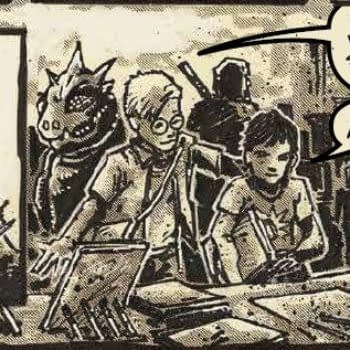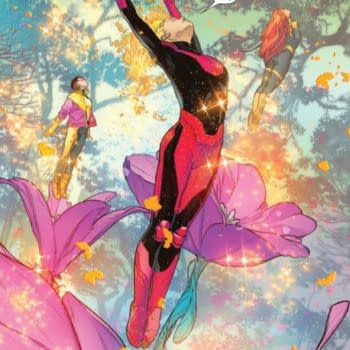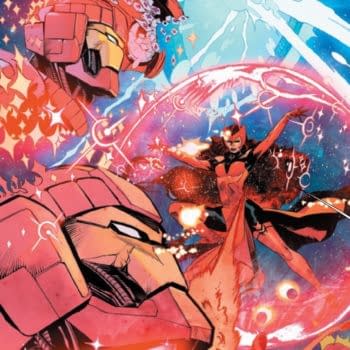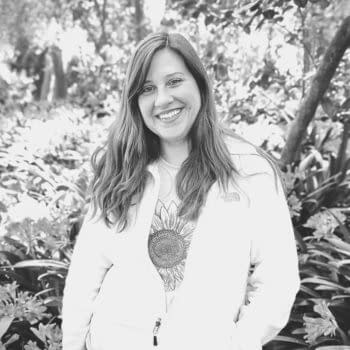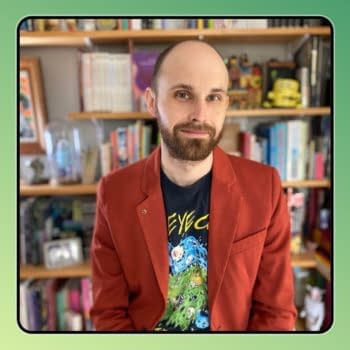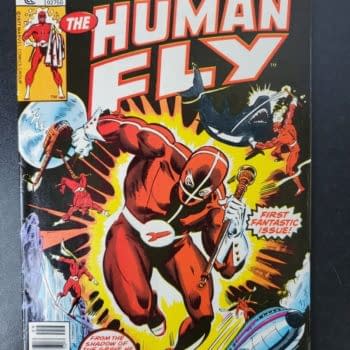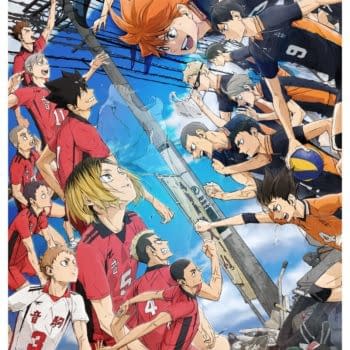Posted in: Comics | Tagged: black, Comics, dc, entertainment, kickstarter, Kwanza Osajyefo
How A Failure At DC Comics Led To 'Black' by Kwanza Osajyefo
2000 DC: Black To The Future – How eschewing the establishment allowed me focus on what was is missing and what matters in making comics.
By Kwanza Johnson, professionally known as Kwanza Osajyefo.
What if only Black people had superpowers?
The question hung in my mind as I thumbed through some comics, wrestling with the notion that a specific superhero group could believably be ostracized in the world of the fantastic. Most characters bemoaning their fringe status have the option to take off their masks, not use their powers, and live among society unassailed.
This is not the case for their real world source of inspiration – Black people.
We live in a world where Blacks are still demonized and dehumanized. What if this hyperbolized concept of Blacks being some superhuman threat was accurate – what if only Black people had superpowers?
To that end, I've teamed up with some fellow creatives I've come to know over my decade-plus working in comics; Tim Smith 3, Jamal Igle, Khary Randolph, and Sarah Litt have partnered with me to launch a Kickstarter campaign to produce BLACK, a graphic novel that doesn't rely on analogy or trope to explore issues of racism in the superhero genre.
BLACK comes at a time when social media's elevation of how Blacks are treated in the US and abroad is in the forefront. Few are obtuse enough to deny the reality that Blacks are still grossly excluded from entertainment as characters, producers, and stewards of content.
I'd also be remiss to present BLACK as though it isn't a rejoinder of my experience working at Marvel and DC, and what I, as a Black man experienced in the comics industry.
My love for comics started very young, and a daring move in my teens landed me in Dwayne McDuffie's office at Milestone Media, where I learned a whole lot about comics in only an hour. Seeing a Black man forge his path in the comics industry made me even more determined to become a professional in the field.
I started as an intern at Marvel and even then the divide in comics was immediately apparent. Editorial was the center of the company, made up of mostly White males – all other departments revolved around their world.
Fortunately, I'd been assigned to Marvel's online department and shortly hired on staff. Working in digital had huge impact on how I would come to think about the medium and the industry.
I left Marvel jaded, wiser about the culture, and resolved to not return to it. Until the opportunity to help DC Comics launch a webcomics imprint pulled me back in.
Zuda was six proud years of my life and I feel I accomplished a lot. Bayou, High Moon, and Night Owls had racked up 1M+ views each, and the channel garnered 1M visitors a month. It was the most visited page after DC Comics homepage – all this on the yearly budget of a single periodical series.
With a network audience 10x larger than a top-tier printed series, Zuda could have paid for itself if hadn't been ad-free – lesson learned there.
It was my mission to seek out talent that DC editorial ignored, in particular people of color and women – talents like Jeremy Love, Carlos López Bermúdez, Molly Crabapple and David Gallaher. Scouting them paid off as they later scooped up record-breaking Glyph Awards, Great Graphic Novels American Library Association Award, a Harvey Award, and an Eisner nomination.
Through Zuda I'd successfully, organically, and authentically put diverse faces in the forefront.
We swayed our biggest detractor, Scott Kurtz, that year because he saw how close knit and supportive Zuda editorial and creators are. The talent I worked with trusted me, because I'm transparent and forward-thinking.
That's what made Zuda work – community. We didn't have many detractors or comment trolls. Everyone that participated in Zuda — readers, creators, and our editorial team — was open and supportive of one another. We hung out in real life, built relationships, and worked together to help each other tell great stories.
It was how comics should be. It's why Zuda's content was so diverse and touched on subjects major publishers are only catching on to… ten years later.
And then, with a change of leadership at DC… Zuda was shuttered. We never had a lot of support compared to print, but after we were asked "why don't you publish any superhero comics?" we knew it was over.
I'm more progressive than optimistic, but attempted to play ball with the new regime. I continued my practice of reaching out to underused talent; Cameron Stewart, Karl Kerschl, Ramon Perez and Andy Belanger all brought their A-games with some awesome pitches, and though it was too late for Zuda, I was offered the opportunity to move to LA and help build out digital publishing.
Honestly, I was skeptical. You hear things in this business and I wanted nothing to do with how DCU editorial operated. I was assured that like Zuda, DC Digital was intended to be an independent imprint. Plus, I was going to work under one of the few editors I respected in comics, Ben Abernathy.
Personal reasons and obligation may have blinded me to some red flags. The program I'd outlined was gutted, I was assigned low-tier print titles, and communications broke down. By the time I reached LA I'd almost missed my first deadline ever, and had been passively — and aggressively — threatened due to cronyism.
Ultimately, I'd lost the ability to be what I consider a real editor: a collaborative partner, working with talent to help them tell their best stories.
It felt as if any progress at DC had basically halted with the folding of Zuda. That digital was less of a priority than something like New 52, which would cater more to the "core" audience: older White males.
I can't lie, being let go from DC Entertainment was stressful but my last year there was such a clash of culture, workflow, and philosophy that I'd given up, shut down. I was a minority in both ethnicity and company culture so when it ended, I was relieved.
I published the first Instagram comic strip (InstaCop, with Andy Belanger), and enjoyed my first San Diego ComiCon in full – no booth duty!
Obviously, I've moved on since then. Despite my disillusionment with the industry, my love of comics never waned and an idea that I had nearly eight years ago seem even more relevant with public attention rightly focused on police slayings of Eric Garner, Michael Brown, 12-year-old Tamir Rice and hundreds of other Black people in 2015.
…
Writing BLACK is bittersweet – it should have existed earlier and how the industry works is symptomatic of how the treatment of Blacks has risen in public consciousness. Diversity is on trend, but inclusion is not – so I'm not satisfied to have the mainstream publishers tokenize their brands in a grab for the fastest-growing consumer demographic.
It's time to take some ownership of the Black narrative in American entertainment, and my partners and I intend to tell a story outside the capacity of most publishers.
We're going through Kickstarter for funding and social proof that there is a desire for stories like this from creators like us, for anyone who loves great comics. I hope we can count on your support in our endeavor.
Pledge to our Kickstarter here.
Thank you.
Kwanza Osajyefo
The content of this article was provided by Ilana Turner of Superfan Promotions







